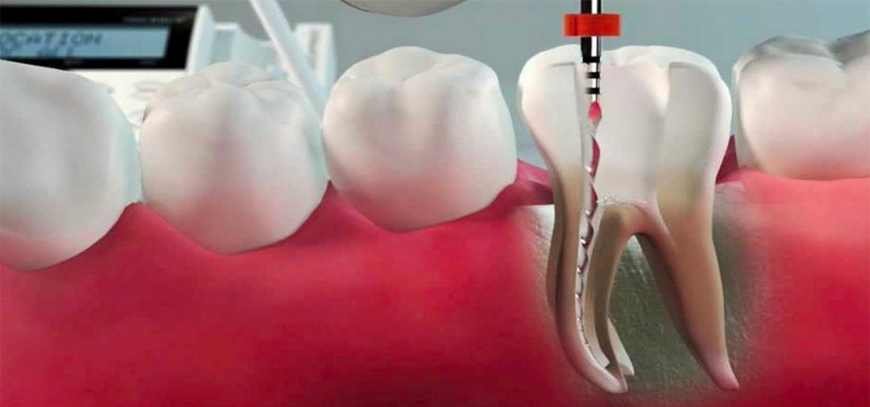Clinic Time:
- Morning: 10 A.M - 2 P.M
Evening: 4:00 P.M - 9 P.M
Contact Info
-
Phone: +91-6261474753
- Send an email
Root Canal Treatments

A root canal treatment is a dental procedure to remove inflamed or infected pulp on the inside of the tooth which is then carefully cleaned and disinfected, then filled and sealed. Root canal treatment is designed to eliminate bacteria from the infected root canal, prevent reinfection of the tooth and save the natural tooth.
As dentists we believe prevention is always better than cure and will always encourage and help you to look after your teeth so you don't develop tooth decay in the first place. If you do have decay and need a filling then we recommend white fillings as a good solution that is both aesthetic and functional.
What happens during root canal treatment?
There's no need to be worried if your dentist or endodontist prescribes a root canal procedure to treat a damaged or diseased tooth. Millions of teeth are treated and saved this way each year, relieving pain and making teeth healthy again.
Inside your tooth, beneath the white enamel and a hard layer called dentin, is a soft tissue called pulp. This tissue contains blood vessels, nerves and connective tissue, which help grow the root of your tooth during its development. A fully developed tooth can survive without the pulp because the tooth continues to be nourished by the tissues surrounding it.
A modern root canal treatment is nothing like those old sayings! It's very similar to a routine filling and can usually be completed in one or two appointments, depending on the condition of your tooth and your personal circumstances. Getting a root canal is relatively painless and extremely effective. You'll be back to smiling, biting and chewing with ease in no time.
Saving the natural tooth with root canal treatment has many advantages:
- Efficient chewing
- Normal biting force and sensation
- Natural appearance
- Protects other teeth from excessive wear or strain
All About Root Canals
A root canal (also known as an endodontic treatment) is a serious procedure, but one that specialists handle every day. Before engaging in any type of dental work, it's important to know the facts about root canals.
Since patients are given anesthesia, a root canal isn't more painful than a regular dental procedure, such as a filling or getting a wisdom tooth removed. However, a root canal is generally a bit sore or numb after the procedure, and can even cause mild discomfort for a few days.
Although you will most likely be numb for 2-4 hours following the procedure, most patients are able to return to school or work directly following a root canal. However, it is advised against eating until the numbness is completely gone.
While you shouldn’t have significant pain after a root canal, you may notice sensitivity for the first few days. These symptoms are normal and can be successfully managed with prescription or over-the-counter pain relievers. In most instances, side effects lessen within one to two weeks.

